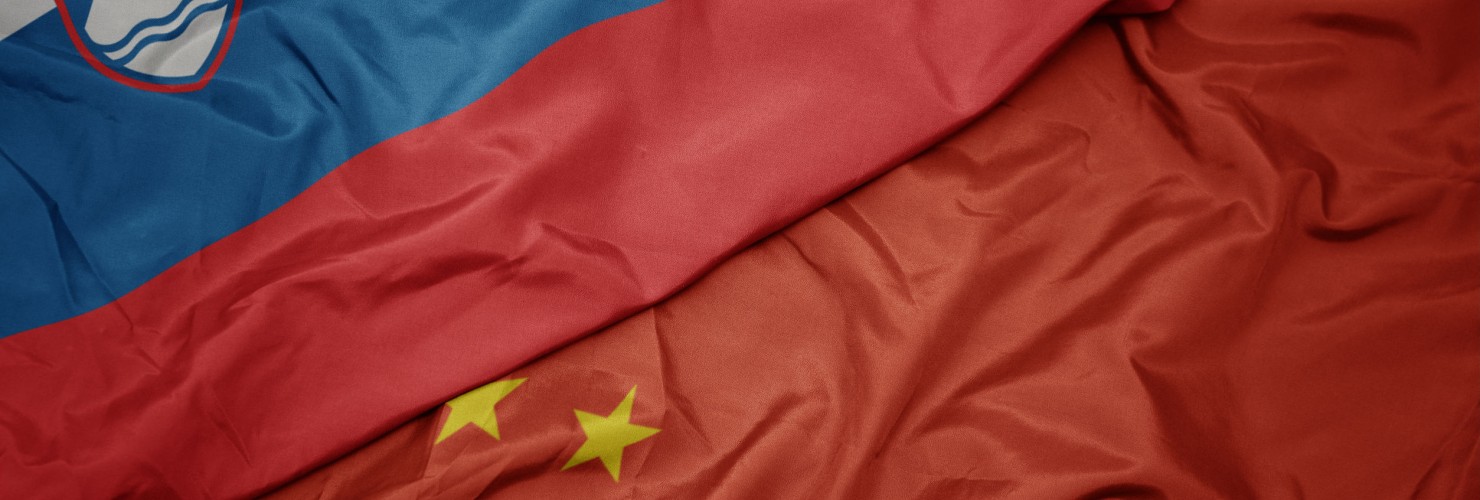

Slovenia’s dance with the superpowers
Ljubljana has flip-flopped between Beijing and Washington, says Valentina Vengust. But a small country has to be able to maintain relations with both.
As relations between the USA and China remain tense, Slovenia shows the dangers smaller nations face of getting caught underfoot as the superpowers wrestle. Although the country’s economic ties to China grew more intensely than those to the US in recent years, Ljubljana this summer gave up a more neutral geopolitical stance by renewing a political and security partnership with the USA. Economic relations with China have since appeared to go into limbo.
On a visit to Ljubljana in August, US Secretary of State Mike Pompeo and his counterpart Anže Logar signed a joint declaration on 5G network security. This move prompted the Slovenian government to consider declaring Huawei a "high-risk" supplier, potentially blocking the Chinese telecoms giant from access to the Slovenian market. Prime minister Janez Janša seems to have signed up to the US-fostered narrative of China being more threat than partner.
There will be a price to pay for this. China is Slovenia’s most important economic partner in Asia. Since the 17+1 initiative of the Central and Eastern European countries and China was founded, Slovenia has seen trade with China grow by around 15% per year, hitting 1.4 billion EUR in 2019. China is Slovenia’s 13th most important trading partner, well ahead of the USA in 21st place. The Chamber of Commerce and Industry of Slovenia in September founded the Slovenian-Chinese Business Council to further strengthen economic relations.
Promises proved hollow
Then again, some of China’s promises proved hollow and resulted in a number of disappointing outcomes for Slovenia. Closer economic ties have not considerably improved the structure of bilateral trade. Manufacturing is still well ahead of services, representing more than 90% of all exports and imports. Slovenia’s trade deficit with China has increased from a sizeable 483 million EUR in 2012 to a gaping 894 million EUR in 2019. On top of that, record levels of Chinese investment in Slovenia have been marred by Chinese operator SHS Aviation last year dropping its plans to develop Maribor Airport.
Even more damaging was Hisense’s acquisition of Slovenian household appliance maker Gorenje. The Chinese white-goods maker subsequently cut jobs, stirring up public opinion against the Chinese presence in Slovenia. And most recently, Chinese companies were excluded from the strategically crucial Divača-Koper railway tender. The project had once been hailed as the potential pinnacle of the Slovenia-China collaboration – and now Slovenian officials were citing Corona-related foreign investment laws for their volte-face.
Souring public opinion shows that the 17+1 initiative has failed to deliver positive economic outcomes and a comprehensive long-term political and security partnership with Beijing. Combine this with Slovenia’s economic dependence on the European Union and it’s not hard to see how Ljubljana was tempted to sign up with the USA’s more aggressively critical China agenda this summer. Slovenia did not have much to lose by turning away from Beijing.
This flip-flopping shows that Slovenia’s foreign policy stance towards China – balancing between the demands of geoeconomics and geopolitics – remains a concern. The country’s chaotic and often-contradictory relations with China demonstrate the lack of foreign policy vision. Even though Prime Minister Janez Janša clearly favors the US as a core political and security ally, China has to be treated as an economic partner that will become ever more important.
A tactical diplomatic balance
The best foreign policy strategy for a small country like Slovenia is also the hardest to achieve – a tactical diplomatic balance in relations with both superpowers. After reaching modern Slovenia’s most important foreign policy goal, accession to the EU in 2004, the country’s foreign policy strategists have rested on their laurels and ignored the need to define the geopolitical and geoeconomic outlook for the next few decades. To ensure good economic relations with China and closer political and security ties to the US, Ljubljana needs to invest in diplomatic expertise and long-term foreign policy strategies.
Investing in domestic China expertise would help the country to guard against damaging political decisions like branding Huawei a “high-risk supplier” and to craft a more mutually satisfactory economic diplomacy. But a small country requires allies to be able to succeed at playing both sides. Given this, Slovenia should strengthen its dedication to the EU and its economic objectives. Slovenia and the other EU members in the 17+1 initiative should also devise a more unified multilateral position towards China. Both moves would achieve a “strength in numbers” effect and reduce asymmetries in relations with China.
About the Author:
Valentina Vengust is an intern in the International Relations team at MERICS. She holds a Master's degree from the London School of Economics and studied for her Bachelor's degree at the University of Business and Economics in Beijing.
